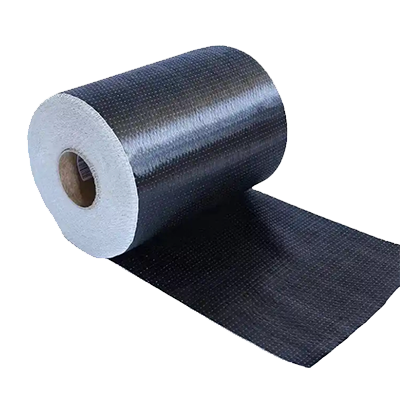Supply Chain Constraints Affect Resin Distributors Worldwide
-
Table of Contents
“Navigating Global Supply Chain Constraints: Resilient Solutions for Resin Distributors.”
Supply chain constraints have emerged as a significant challenge for resin distributors worldwide, impacting their ability to meet market demands and maintain operational efficiency. These constraints stem from a variety of factors, including raw material shortages, transportation disruptions, and geopolitical tensions. As the demand for resins continues to rise across various industries, including automotive, construction, and packaging, distributors face increasing pressure to navigate these complexities. The interplay of global logistics issues, fluctuating prices, and the need for sustainable practices further complicates the landscape, necessitating innovative strategies and adaptive solutions to ensure resilience and competitiveness in the market.
Global Supply Chain Disruptions Impacting Resin Availability
The global supply chain has faced unprecedented disruptions in recent years, significantly impacting various industries, including the resin distribution sector. As resin is a critical component in numerous applications, from automotive manufacturing to consumer goods, any disruption in its supply chain reverberates throughout the economy. The COVID-19 pandemic served as a catalyst for these disruptions, exposing vulnerabilities in logistics, production, and distribution networks. Consequently, resin distributors worldwide have encountered challenges that have altered their operational landscapes.
One of the primary factors contributing to the scarcity of resin is the interruption of production facilities. Many resin manufacturers were forced to temporarily shut down or reduce their output due to health and safety regulations, labor shortages, and supply chain bottlenecks. As a result, the availability of raw materials diminished, leading to a ripple effect that affected resin production. Furthermore, the increased demand for certain types of resins, particularly those used in medical and packaging applications, exacerbated the situation. This surge in demand, coupled with reduced supply, created a perfect storm that left many distributors struggling to meet their customers’ needs.
In addition to production challenges, transportation issues have played a significant role in the resin supply chain crisis. The pandemic led to a shortage of shipping containers and a backlog at major ports, causing delays in the delivery of resin products. As resin distributors rely heavily on timely shipments to maintain their inventory levels, these delays have forced many to reevaluate their logistics strategies. Moreover, rising freight costs have further strained the financial viability of resin distribution, compelling companies to pass on these expenses to their customers. This situation has not only affected pricing but has also led to increased lead times, making it difficult for manufacturers to plan their production schedules effectively.
Moreover, geopolitical tensions and trade policies have added another layer of complexity to the resin supply chain. Tariffs and trade restrictions can hinder the flow of materials across borders, impacting resin availability in various regions. For instance, disruptions in the supply of petrochemicals, which are essential for resin production, can lead to localized shortages. As resin distributors navigate these challenges, they must also consider the long-term implications of such geopolitical factors on their sourcing strategies.
In light of these challenges, many resin distributors are exploring alternative sourcing options and diversifying their supplier base to mitigate risks. By establishing relationships with multiple suppliers, distributors can enhance their resilience against future disruptions. Additionally, investing in technology and data analytics can provide valuable insights into market trends and help distributors make informed decisions regarding inventory management and procurement strategies.
As the global economy gradually recovers from the pandemic, it is essential for resin distributors to adapt to the evolving landscape. Emphasizing collaboration with suppliers and customers can foster a more robust supply chain, enabling distributors to respond more effectively to fluctuations in demand and supply. Ultimately, while the current disruptions present significant challenges, they also offer an opportunity for resin distributors to innovate and strengthen their operations for the future. By embracing change and focusing on resilience, the resin distribution sector can emerge from this crisis more robust and better equipped to navigate the complexities of the global supply chain.
Strategies for Resin Distributors to Navigate Supply Chain Constraints

As resin distributors face unprecedented supply chain constraints, it becomes imperative for them to adopt strategic measures to navigate these challenges effectively. The global landscape has been significantly impacted by various factors, including geopolitical tensions, natural disasters, and the lingering effects of the COVID-19 pandemic. These disruptions have led to shortages, increased costs, and delays in the delivery of essential materials. Consequently, resin distributors must implement innovative strategies to ensure their operations remain resilient and responsive to market demands.
One of the foremost strategies involves enhancing supplier relationships. By fostering strong partnerships with suppliers, resin distributors can gain better insights into the availability of materials and potential disruptions. This collaborative approach not only facilitates more accurate forecasting but also enables distributors to negotiate favorable terms and prioritize their orders during times of scarcity. Furthermore, establishing multiple sourcing options can mitigate risks associated with reliance on a single supplier. Diversifying the supplier base allows distributors to tap into alternative sources, thereby reducing vulnerability to localized disruptions.
In addition to strengthening supplier relationships, resin distributors should invest in technology to improve supply chain visibility. Advanced analytics and real-time tracking systems can provide critical insights into inventory levels, shipment statuses, and demand fluctuations. By leveraging data analytics, distributors can make informed decisions regarding inventory management, ensuring they maintain optimal stock levels while minimizing excess. Moreover, implementing supply chain management software can streamline operations, enhance communication, and facilitate better coordination among various stakeholders, ultimately leading to improved efficiency.
Another effective strategy is to adopt a proactive approach to inventory management. Resin distributors can benefit from implementing just-in-time (JIT) inventory practices, which involve maintaining minimal stock levels while ensuring timely replenishment. This approach not only reduces holding costs but also allows distributors to respond swiftly to changes in demand. However, it is crucial to strike a balance between JIT practices and maintaining a safety stock to cushion against unexpected disruptions. By carefully analyzing historical data and market trends, distributors can optimize their inventory strategies to align with current and anticipated demand.
Furthermore, resin distributors should consider exploring alternative materials and formulations. As supply chain constraints persist, the ability to pivot towards substitute resins or innovative formulations can provide a competitive edge. Collaborating with manufacturers and research institutions to develop new products can open up new markets and reduce dependency on traditional resin sources. This adaptability not only enhances product offerings but also positions distributors as forward-thinking leaders in the industry.
Additionally, effective communication with customers is vital during times of supply chain uncertainty. Resin distributors should maintain transparency regarding potential delays and shortages, providing customers with realistic timelines and alternative solutions. By managing expectations and fostering open dialogue, distributors can build trust and loyalty among their clientele, which is essential for long-term success.
In conclusion, navigating supply chain constraints requires resin distributors to adopt a multifaceted approach that encompasses strengthening supplier relationships, leveraging technology, optimizing inventory management, exploring alternative materials, and maintaining clear communication with customers. By implementing these strategies, distributors can enhance their resilience in the face of ongoing challenges, ensuring they remain competitive in a rapidly evolving market. As the global supply chain landscape continues to shift, those who proactively adapt will be better positioned to thrive amidst uncertainty.
The Role of Technology in Mitigating Resin Supply Chain Challenges
The resin industry, a critical component of various manufacturing sectors, has faced significant challenges in recent years due to supply chain constraints. These challenges have been exacerbated by global events, including the COVID-19 pandemic, geopolitical tensions, and fluctuating demand patterns. In response to these disruptions, technology has emerged as a vital tool for resin distributors seeking to navigate the complexities of the supply chain. By leveraging advanced technological solutions, companies can enhance their operational efficiency, improve inventory management, and ultimately mitigate the adverse effects of supply chain constraints.
One of the most impactful technological advancements in the resin distribution sector is the implementation of data analytics. By harnessing the power of big data, distributors can gain valuable insights into market trends, customer preferences, and supply chain dynamics. For instance, predictive analytics allows companies to forecast demand more accurately, enabling them to adjust their procurement strategies accordingly. This proactive approach not only helps in maintaining optimal inventory levels but also reduces the risk of overstocking or stockouts, which can be particularly detrimental in a volatile market.
Moreover, the integration of Internet of Things (IoT) devices has revolutionized the way resin distributors monitor their supply chains. IoT technology facilitates real-time tracking of shipments, providing visibility into the movement of materials from suppliers to end-users. This transparency is crucial for identifying potential bottlenecks and delays, allowing distributors to take corrective actions swiftly. For example, if a shipment is delayed due to unforeseen circumstances, distributors can communicate with customers proactively, thereby maintaining trust and satisfaction. Additionally, IoT devices can monitor storage conditions, ensuring that resins are kept in optimal environments, which is essential for preserving their quality.
In tandem with IoT, the adoption of cloud-based supply chain management systems has become increasingly prevalent among resin distributors. These platforms enable seamless collaboration between various stakeholders, including suppliers, manufacturers, and logistics providers. By centralizing information and facilitating real-time communication, cloud-based systems enhance coordination and streamline operations. This interconnectedness is particularly beneficial in a globalized market, where resin distributors often rely on multiple suppliers across different regions. As a result, companies can respond more effectively to disruptions and adapt their strategies to changing market conditions.
Furthermore, automation technologies, such as robotic process automation (RPA), are playing a crucial role in optimizing operational workflows within resin distribution. By automating repetitive tasks, such as order processing and inventory management, companies can reduce human error and increase efficiency. This not only frees up valuable resources but also allows employees to focus on more strategic initiatives, such as building customer relationships and exploring new market opportunities. As a consequence, the overall agility of the organization improves, enabling it to respond more swiftly to supply chain challenges.
In conclusion, the resin distribution sector is navigating a landscape fraught with supply chain constraints, yet technology offers a beacon of hope. By embracing data analytics, IoT, cloud-based systems, and automation, resin distributors can enhance their operational resilience and adaptability. As these technological solutions continue to evolve, they will undoubtedly play an increasingly pivotal role in shaping the future of the resin supply chain. Ultimately, the successful integration of technology not only mitigates current challenges but also positions companies for sustained growth in an ever-changing market environment.
Q&A
1. **Question:** What are the primary factors contributing to supply chain constraints for resin distributors globally?
**Answer:** Key factors include raw material shortages, transportation disruptions, geopolitical tensions, and increased demand for certain resins in various industries.
2. **Question:** How do supply chain constraints impact pricing for resin distributors?
**Answer:** Supply chain constraints often lead to increased costs for raw materials and logistics, resulting in higher prices for resins as distributors pass on these costs to customers.
3. **Question:** What strategies can resin distributors employ to mitigate the effects of supply chain constraints?
**Answer:** Distributors can diversify their supplier base, invest in inventory management systems, establish stronger relationships with logistics providers, and explore alternative materials to reduce dependency on constrained resources.Supply chain constraints have significantly impacted resin distributors worldwide by causing delays, increasing costs, and limiting product availability. These challenges stem from various factors, including raw material shortages, transportation disruptions, and geopolitical tensions. As a result, resin distributors are forced to adapt by diversifying their supply sources, optimizing inventory management, and enhancing collaboration with suppliers. Ultimately, addressing these constraints is crucial for maintaining operational efficiency and meeting customer demands in a competitive market.











